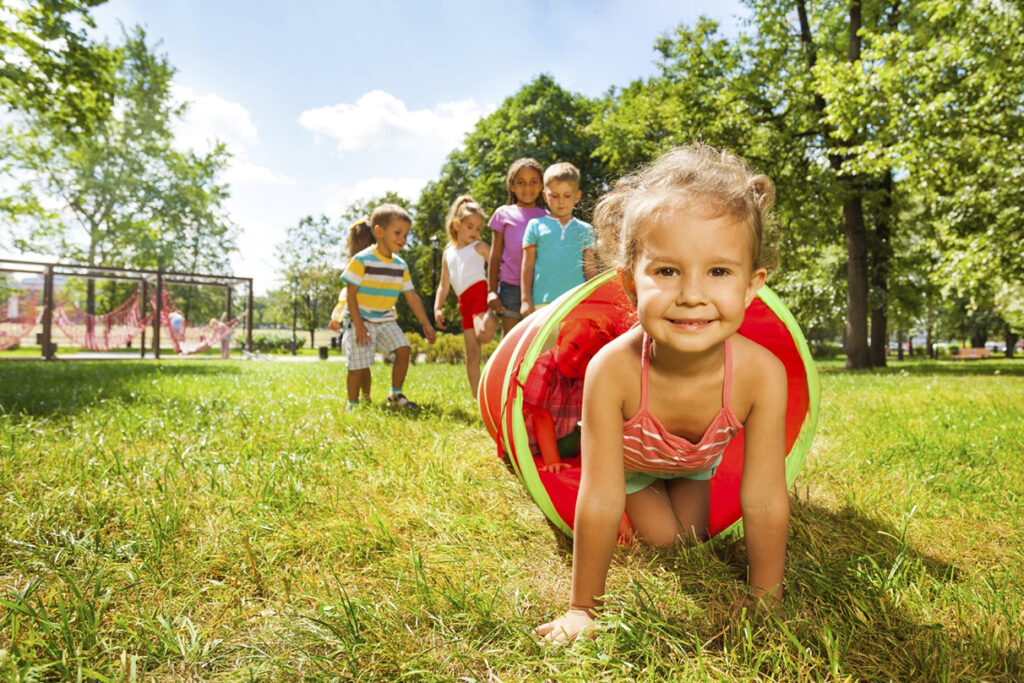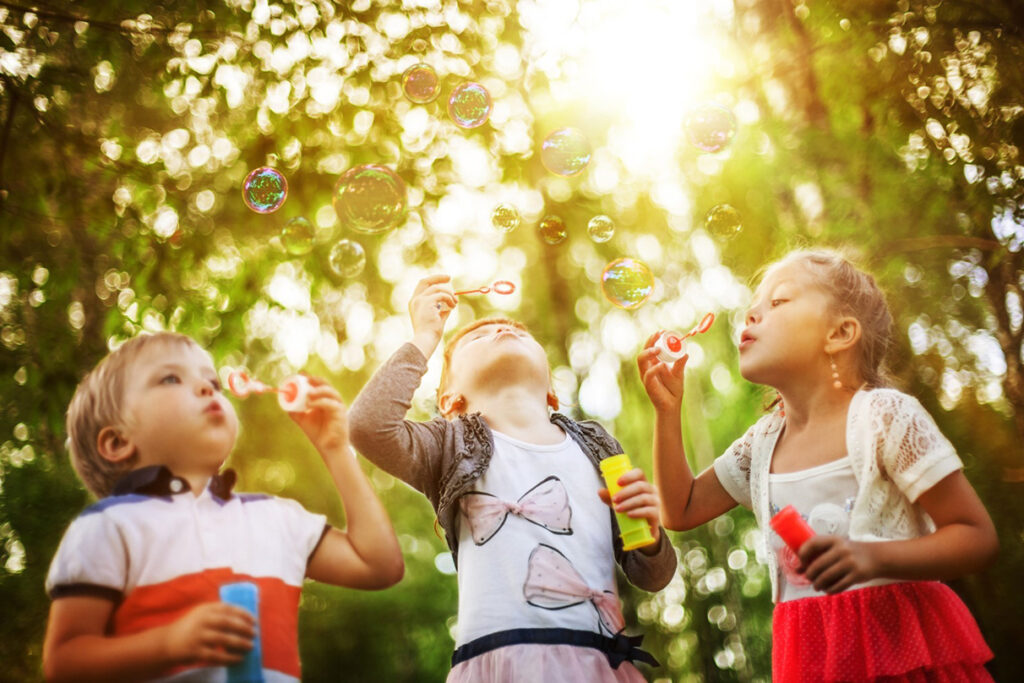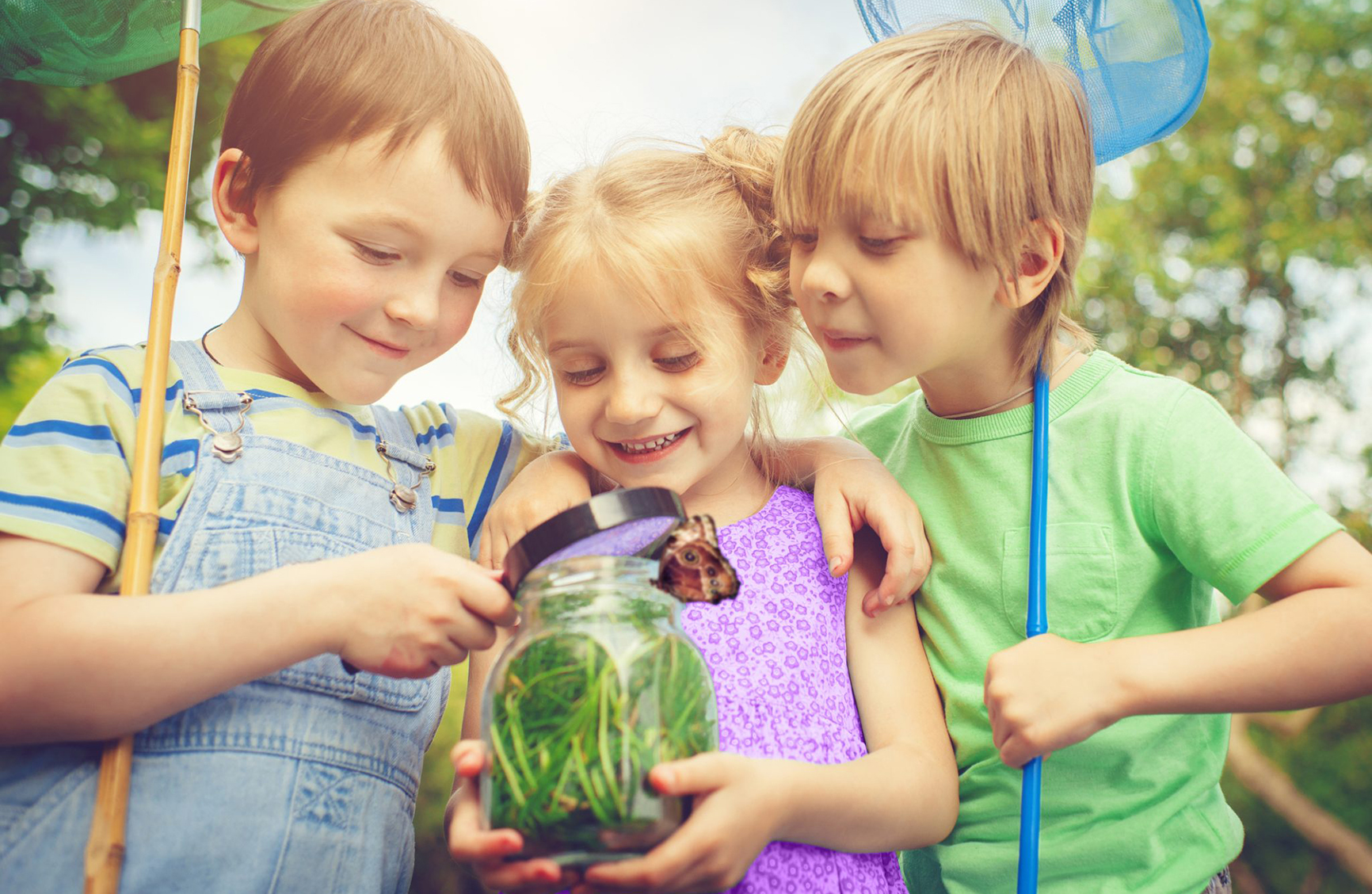During early childhood, young learners grow and develop beyond the four walls of the classroom. Studies suggest that outdoor play helps young learners develop their physical, cognitive and social skills more than sitting at a desk or being confined inside. Children are encouraged to take on roles as discoverers, explorers, inventors, leaders and creators during outdoor play, allowing them to move and explore.
Here are some of the many benefits children get from outdoor play.
More physical activity
The majority of children do not get enough outdoor play nowadays. This is because they spend a great deal of time on gadgets playing games, watching videos and surfing the web. Among children aged two to five, 67% spend too much time on screens. This exceeds the recommended screen time guidelines, according to Bloomberg data.
Wraparound care providers and families must work together to promote outdoor play for children. This is essential because it is so beneficial to their physical development and health. Active play outdoors prevents weight-related problems. Children burn calories, strengthen their muscles and increase endurance when they run, jump and climb.

Outdoor activities also enhance children’s motor skills. A child can gain coordination, agility and dexterity by experiencing an outdoor environment. For example, they learn sensory exploration when they play in a sand pit. They learn how to balance when they swing on a rope or ride a seesaw.
Better motor skills
It is possible to influence the development of gross motor skills by participating in certain activities. As children move in ways that challenge their bones, muscles and endurance, outdoor activities such as running, ball games, red light-green light games, hopscotch and more enhance their motor skills.
Playing in a sandbox, drawing on concrete or digging for rocks and bugs in the dirt are all examples of fine motor and small-muscle physical skills that children develop. In addition to writing and grasping small objects, fine motor skills help with reaching for and manipulating objects, which require precise movement.
Emotional development
Children benefit from the outdoors because it offers them new opportunities to test their skills and abilities, which contributes positively to their emotional development. New and challenging circumstances encourage independence and self-confidence in children. As children discover their personal capabilities, they can also develop their self-awareness as they learn how to take risks and accomplish new tasks.
As children play outside with their friends, they develop an understanding of boundaries, which allows them to grow emotionally. Studies have shown that children who spend more time outdoors are more emotionally adjusted.

During unstructured outdoor play, children can also try and discover new things. As a result of their failures and successes, they will experience a wide range of emotions. But as they grow, self-reflection becomes an integral part of this process. They learn how to analyse their feelings and control their emotions more effectively.
Better social skills
When children play outside, they have more opportunities for social development. Children can practice forming relationships without parental help in outdoor spaces like playgrounds. When children play in parks or playgrounds, they meet new friends and learn how to form genuine friendships.
Besides learning how to play and build camaraderie with other children, the outdoors also offers little ones the chance to meet children from other backgrounds. Children can develop a sense of empathy for each other’s feelings and emotions by interacting together in a safe and positive environment. This promotes healthy communication among them.
As they grow older, these children can enter situations in which they need to work with people from different backgrounds more comfortably.
More creativity
During outdoor play, children can use their surroundings to create their own imaginary world, fostering intellectual development and boosting creativity. Outside play promotes children’s ability to process sensory information by engaging the five senses. As a result, they become more familiar with sensory experiences and have a positive reaction to them.
The outdoors offers many opportunities to foster a child’s creativity. Consider hiking a natural trail, arranging a scavenger hunt or arranging open-ended arts & crafts activities.
If your wraparound care wants to share how you’re encouraging outdoor play for children, the Playground app is perfectly suited to sharing photos and videos of these activities. Get in touch to learn more.

by Xplor Childcare
-
First published: 21 December 2022
Written by: Xplor Childcare
